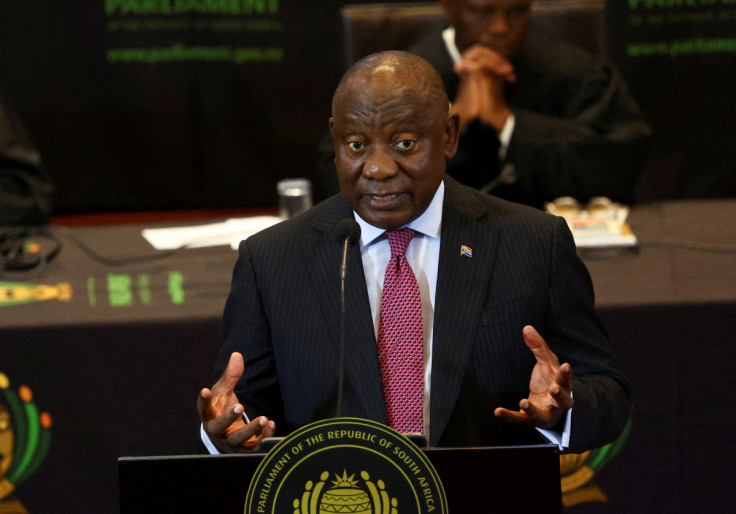Ramaphosa Praises Media As Country Ranked 25th In World Press Freedom Index
President Cyril Ramaphosa praised the media of the country as South Africa jumped to 25th rank in World Press Freedom Index (WPFI) from 35th rank.
WPFI is an annual report shared by an international non-governmental and non-profit organization named Reporters Without Borders (RSF), which was founded in 1985.
In the weekly newsletter issued on Monday, President Ramaphosa noted that "media freedom is a pillar" of South Africa's democratic order, adding that the journalists in the country "continue to be the standard-bearers for accountability and the empowerment of citizens," SANews reported.
The president praised the media investigations to highlight the corruption in the country alongside putting a spotlight on the "abuse of vulnerable people, the targeting of whistle-blowers, and all manner of wrongdoing within the state, the private sector, academia and other sectors."
"Media freedom, like so many of the rights contained in our Constitution, is hard-won," Ramaphosa said. "It thrives in an environment where the media itself exercises due caution to be credible, accurate, fair and truthful always."
The president noted that the state of South African media is not defined by WPFI ranking but by how it contributes in order to build a vibrant democracy with an informed, empowered, and active citizenry.
Ramaphosa further explained that journalists in the country can freely work without any censorship, harassment, or judicial sanction. However, they still face many internal and external challenges.
He pointed out how the media is struggling to survive, considering the changing technology and media consumption behavior, especially after the COVID-19 pandemic. "These developments inevitably undermine the vibrancy and diversity of our media," the president continued.
The 70-year-old ANC leader also acknowledged how journalists have been threatened or assaulted while doing their work in the last few years. He went on to share that some of the journalists have been slammed on social media and some got targeted by politicians.
He said as a society, everyone should condemn such actions and prevent journalists. He further urged the media to hold powerful people - including private and government sectors - accountable for their actions and educate the citizens on pressing issues.
Talking about the upcoming general elections next year in South Africa, the president noted that the media should encourage citizens to exercise their right to vote.
"As citizens prepare to exercise this important civic responsibility, the media should use its reach and influence to encourage more citizens to register to vote," the president said. "It should make a greater effort to cover issues in communities that sometimes receive little coverage in the mainstream media."
He concluded, "Without seeking to unduly influence voters, the media should focus on the critical issues that matter to people when they need to decide who to vote for."
South Africa is currently facing major load-shedding issues in the country. The president appointed Kgosientsho Ramokgopa as electricity minister in March and since then, he has visited 14 power stations across the country to find out the root cause behind load shedding.

© Copyright 2026 IBTimes ZA. All rights reserved.





















